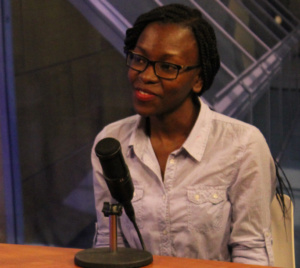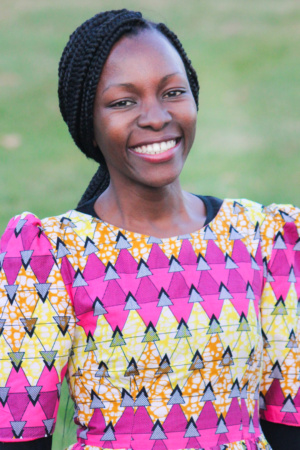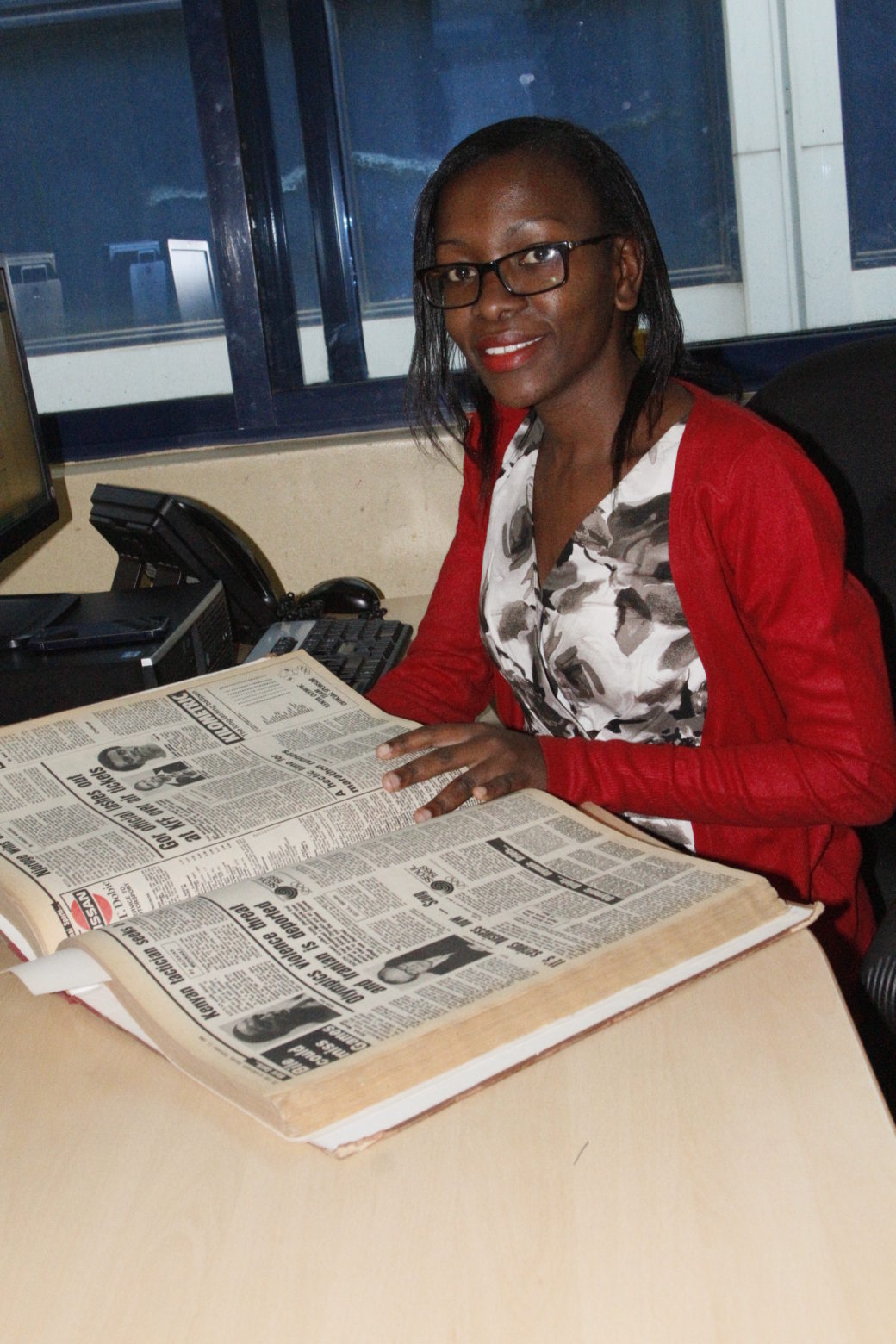ASHLEY BAHATI LIME
Nairobi, Kenya| Sub-Editor, The Standard
Alfred Friendly Fellow | Host: St. Louis Post-Dispatch
By Nicholas Cheng |
Ashley Lime is sitting in a cold room at the corner of her office meeting room table, watching ten editors argue about what should go on their newspaper’s front page for the next day.
She chimes in amid the rapid fire back and forth to suggest a human interest angle for a political news story. The buzzing room quiets down, ten sets of eyes dart at her, as if noticing her presence for the first time. The cold room feels colder now.
Lime (lee MAY) was well aware, at age 30, that she was the youngest person in the room. She was also the only woman.
The editors shoot down her idea and went back to arguing amongst themselves and she stayed quiet for the rest of the meeting.
“It felt like my words flew from my mouth and over their heads and out the window,” said Lime, a sub-editor The Standard, the oldest newspaper in Kenya. “I sort of see something like they don’t take women seriously.”
For the soft spoken but plucky editor, who moved from a correspondent job to try a hand in a managerial position, the cold shoulder by her male colleagues was hard to take.
Lime was born in rural Kakamega in western Kenya and became a journalist by accident. She wanted to follow the footsteps of her nurse mother and priest father in helping people, by becoming a physician. But she found she could not stand the sight of blood. And in another twist of fate, Kenya’s education board admitted her to study communications, a course she filled out at random below her other medical courses.
“When I saw the letter, I screamed! I thought what is this?” And thus began her life in journalism. Lime changed her mind about the profession after experiencing the thrill of chasing a story, particularly on the day she covered a violent student protest in her university.
 “It was interesting, fun, intriguing. I feel an adrenaline rush when there’s a story. With time I realised, I love this. This is me.”
“It was interesting, fun, intriguing. I feel an adrenaline rush when there’s a story. With time I realised, I love this. This is me.”
Lime has been a journalist for seven-years now and has covered stories on the Al-Shabab terrorist group, refugee problems and deadly diseases in Nairobi. She worked as a reporter for Kenya’s largest newspaper The Daily Nation from 2010 until 2012 before moving to her sub-editing job at The Standard.
It is in this job where her passion for journalism was truly being tested. As a sub-editor, she moved away from the exciting, fast paced life of a reporter to an office-bound job, with the daunting task of clearing multitudes of stories. Being one of the few women in her newsroom also proved a challenge. About 80 percent of The Standard’s editorial staff are men.
Lime’s experience is a familiar problem for female journalists in Kenya. A paper by Kioko Ireri of the United States International University in Africa found that women only made up 34 percent of Kenya’s journalists. A study by communications consultant Njeri Okono stated that female journalists were more likely to be relegated to “soft” beats like arts, fashion and religion. An African Woman and Child Feature Service survey found that male journalists were seven times more likely to receive airtime than women.
Nevertheless, her mentor, Catherine Gicheru, a veteran Kenyan editor and International Center for Journalists Knight Fellow, urged her to to continue trying to make herself be heard.
“She said you have to keep buzzing like a bee until they hear you. If I saw something, I would say it. If they didn’t take it I would insist. And if they didn’t agree, at least they heard me. And after that, I saw a difference.”
Lime, still afraid of blood, also put herself in some of the most dangerous situations to report in. In 2011, she interviewed horrifically burnt victims from a slum fire in the shanty town of Sinai in Nairobi. She also covered a building collapse in the city’s Embakasi area, which killed two people.
“It was quite traumatizing, what I smelled and what I saw. But I went back and wrote the stories anyway. I would tell my friends what I do and they were shocked. They ask how I could do such jobs because it was not right for me to be putting myself in such psychological torture.
“Even my mother says I should find a better job because she’s always worried. But I am happy telling people’s stories. Because the government needs to do something about these stories,” she said.
Her resilience in the face of workplace and personal odds won her the respect of her male dominated peers. Last year, Lime was awarded Standard Group’s sub-editor of the year award and her bosses, despite dealing with layoffs and expenditure cuts, invested money for her to join the Alfred Friendly Press Partners program as a 2017 fellow. She will spend six months working at the St. Louis Post-Dispatch.
When she returns to Kenya, she hopes to mentor female colleagues on journalism best practices from the United States and to push more female journalists to work towards harder beats and managerial positions in newsrooms.
“I think women put themselves at that level by not proving who they are. We tend to give up very easily. But once you show that you can really do it, you will have respect. I think women need to come out and do what the men are doing,” Lime said, channeling her mentor Godia, who was laid off from The Standard in 2009.
“I dream of female Kenyan journalists in top editorial positions and in investigative journalism. I really want more women to come out and report and be editors and take those positions. They can do more to bring change in society.”



